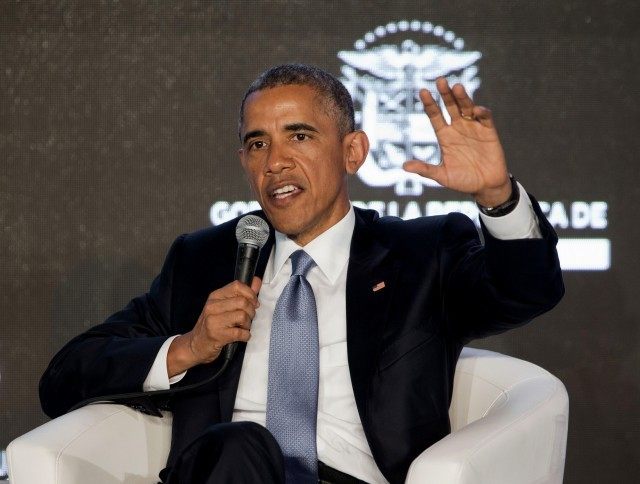President Barack Obama attempted on Saturday to dismiss harsh criticism by Iranian leader Ayatollah Ali Khamenei, who had accused the American president last week of “lying” about the terms of the nuclear framework reached in Lausanne, Switzerland earlier this month. Obama tried to explain that Khamenei’s remarks were intended for domestic political purposes: “Even a guy with the title ‘Supreme Leader’ has to be concerned about his own constituencies,” Obama said.
Khamenei had specifically attacked the White House’s “fact sheet” on the framework, which even Obama administration officials admitted was not a reflection of what the two sides had agreed, but rather an attempt to sell the deal to the public.
I trust our negotiators but I’m really worried as the other side is into lying & breaching promises; an example was White House fact sheet.
— Khamenei.ir (@khamenei_ir) April 9, 2015
According to Iran, the Lausanne framework provides for immediate relief from sanctions. The Obama administration has tried to describe sanctions relief as a step-by-step process. Legally, only Congress can remove some of the sanctions.
Obama admitted Saturday that if Khamenei actually meant what he said, there could not be a final agreement. However, he blasted Republicans, including 2008 rival Sen. John McCain (R-AZ), who had said that Secretary of State John Kerry had been “less trustworthy than the supreme leader” of Iran on the Lausanne terms. Obama said McCain’s criticism “crossed all boundaries.” McCain responded to Obama’s criticism by pointing out ““widely divergent explanations” of the Iran deal.
The partisanship, Obama said on Saturday, “needs to stop.” On April 2, announcing the Lausanne framework, he had said: “I welcome a robust debate in the weeks and months to come.” He also promised “to fully brief Congress and the American people on the substance of the deal.” However, given Khamenei’s statements, the “substance of the deal” remains unclear.
Obama’s defense of Khamenei’s statement contrasts sharply with his recent criticisms of election rhetoric by Israeli Prime Minister Benjamin Netanyahu, which the administration has treated as the basis for a change in relations between the two. Netanyahu had stated that a Palestinian state would not happen on his watch, and also warned right-wing voters that Arab voters were being bused to the polls by foreign-funded organizations. He later apologized for the latter statement.
The Obama administration rejected that apology, and is thought to be considering retaliatory action at the United Nations, such as approving the anticipated declaration of a Palestinian state, outside negotiations–something the U.S. has long opposed.

COMMENTS
Please let us know if you're having issues with commenting.